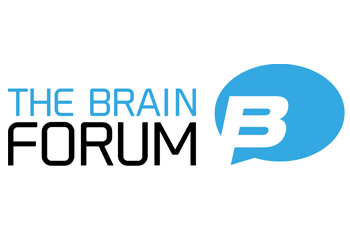 Saudi Arabia – April. 6, 2015 (ME NewsWire) – Professor Patrick Aebischer, co-chair of The Brain Forum and President of Ecole polytechnique fédérale de Lausanne (EPFL) is pleased with the outcome: “The enigma of the brain has been puzzling scientists for centuries. We need scientific, academic, industrial and philanthropic communities to unite and develop mechanisms for partnerships and collaborations.”
Saudi Arabia – April. 6, 2015 (ME NewsWire) – Professor Patrick Aebischer, co-chair of The Brain Forum and President of Ecole polytechnique fédérale de Lausanne (EPFL) is pleased with the outcome: “The enigma of the brain has been puzzling scientists for centuries. We need scientific, academic, industrial and philanthropic communities to unite and develop mechanisms for partnerships and collaborations.”
Co-chair Walid Juffali, the Chairman of W Science Initiative, also expressed his satisfaction: “The Brain Forum 2015 managed to use its convening power to bring stakeholders from 27 different countries to meet, discuss, debate current challenges and explore the possibilities to develop new tools and technologies that have great potential to transform the field of brain research and improve healthcare. It was a major step into the right direction and we have decided to make The Brain Forum an annual event.”
Scientific leaders from the Swiss academia and the industry welcomed the W Science Initiative and expressed their enthusiastic support and commitment to development of the as the premier global forum that promotes the sharing and exchange information and ideas with the aim of advancing brain research and translational neuroscience.
Prof. Carmen Sandi, director of the Brain Mind Institute, one of the main partners for the Brain Forum 2015, emphasized: “The Brain Forum has succeeded in highlighting and featuring the exciting and groundbreaking interdisciplinary research that is taking place at the interfaces of neuroscience, engineering and computer sciences within the EPFL and around the globe”.
“With the unwavering commitment of Dr. Walid Juffali and the tremendous support we have received from the EPFL Brain Mind Institute, the industry and scientific community, we are confident that The Brain Forum will become the premier global event for Brain Research and key platform for fostering collaborations and global initiatives that have the potential of transforming healthcare in the future.” says Dr. Jamil El-Imad, CEO of the W Science Initiative.
Consensus, competition and Highlights of The Brain Forum 2015:
Announcement of China Brain Science Project: Nancy Ip, Dean of Science at the University of Hong Kong, presented the future China Brain Science Project which focuses to advance our understanding of the causes of major brain disorders such as autism, addictions, depressions or Alzheimer’s. The China Brain Science Project seeks to greatly develop early detection and prevention strategies that will help the many who are and will be affected by neurological diseases.
Standardizing and open sharing of data is critical to successful brain research: Several speakers and participants highlighted the critical importance of standardizing and open sharing of data and promoting a culture that values, recognizes and rewards team-based efforts and contributions for advancing these large scale and ambitious projects. A consensus emerged that there is a need for continued engagement and cooperation among all the Brain initiatives and that The Brain Forum represents a great platform for facilitating future collaborations.
Walking again, a dream ever closer: The advances in the field of neurological repairs and enhancement are breathtaking. Prof. Miguel Nicolelis from the Duke University and Natal Institute and Prof. Grégoire Courtine, Associate professor at Brain Mind Institute and Center of Neuroprosthetic at the EPFL presented the latest advances from their groups which provided a powerful illustration of what happens when breakthroughs in neuroscience, cutting-edge technologies meet the amazing adaptive capabilities of the brain: a woman can move and feel her legs again after twelve years of complete paralysis. While the beneficiaries are still few, they are living, walking, icons of the incredible potential of brain research and development.
Alzheimer’s disease – finding a cure or efficient prevention will be one of the great challenges of the new millennium: Alzheimer’s disease represents 70% of all forms of dementia and its cost worldwide now exceeds 600 billion dollars. As the number of victims of this type of neurodegeneration is expected to triple by 2050, finding a cure or efficient prevention will be one of the great challenges of the new millennium. As was mentioned in previous panels, complex diseases require complex solutions. Andrea Pfeifer, CEO of AC Immune, and Nancy Ip, Dean of Science at the Hong Kong University, exposed the various ways to fight this bane of our aging society. Abeta and Tau suppressors are promising but the solution seems to lie in innovative prevention and combination therapies.
Next generation showcased breathtaking innovations: Committed to the promotion of startups, The Brain Forum hosted a pitch session for Swiss startups. The final took place on April 1, allowing six early-stage companies to showcase their innovations in front of a high-profile panel and The Brain Forum stakeholders.

